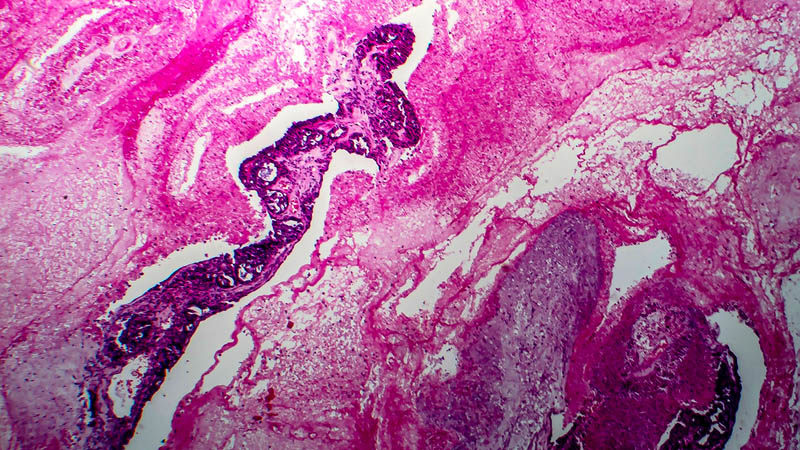Analysis of treatment failures in stage IB–IIA squamous cell carcinoma of the uterine cervix following surgery
Joanna Terlikiewicz
 Affiliacja i adres do korespondencji
Affiliacja i adres do korespondencjiThe outcomes of cervical cancer treatment are strictly associated with such prognostic factors as tumor size, the presence of metastases in pelvic lymph nodes, parametrial invasion and tumor differentiation grade. The aim of the study was to analyze the outcomes of 338 patients with FIGO stage IB–IIA cervical cancer treated with surgery at the Oncology Center in Bydgoszcz, Poland, in 2002–2015. Statistically significant differences in the overall survival rates depending on the size of cervical tumor and FIGO stage as well as in recurrence-free survival rates depending on the presence of pelvic lymph node metastases were observed. In 29.3% of patients treatment failure occurred. In 54.5% of patients from this group nodal recurrence was found and in 26.3% of patients central recurrence was observed. Median time to nodal recurrence was 14 months and median time to local recurrence was 13 months. The results of the analysis confirm the impact of the status of pelvic lymph nodes and the size of the primary tumor on the prognosis for cervical cancer patients.









